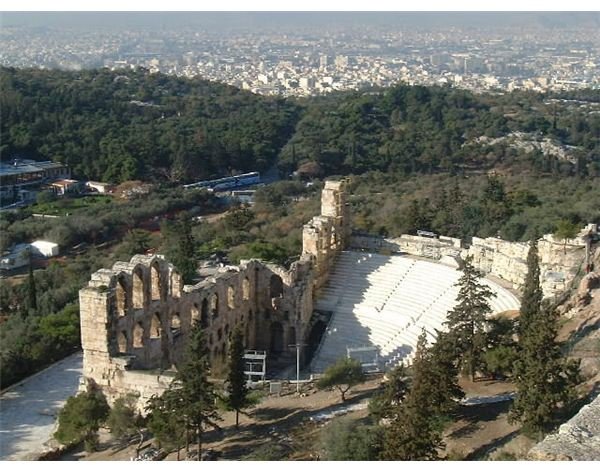High School Lesson Plan: Discover Ancient Greece Cultural Influences through Modern Words from Ancient Greek Culture
Ancient Greece cultural influences are evident everywhere in the modern world. From architecture to the Olympics, Ancient Greece has left its mark on history, and the present day. The following lesson plan looks at how the Ancient Greek impact is evident in modern words from the cultures that we use everyday.
Cultural Influences
Lesson Focus: Modern Words from Ancient Greek Culture and the History of Ancient Greece: Democracy, Culture, and Greek Mythology
Grade Level: 9-12
Prior knowledge: Previous lessons on Ancient Greece would be helpful but are not necessary.
Materials Needed:
- A dictionary that provides the etymology of words. You can find an online etymology dictionary here, and your school librarian may be able to help you locate others.
- Class textbook.
- Copies of a chart with three columns
Time Needed:
One or two class periods.
Educational Standards Met:
NCSS Thematic Standard: II, Time, Continuity, and Change.
NCSS Thematic Standard: x, Civics Ideals and Practices.
NSS-WH.5-12.3 ERA 3: Classical Traditions, Major Religions, and Giant Empires, 1000 BCE-300 CE; Standard , How major religions and large-scale empires arose in the Mediterranean basin, China, and India, 500 BCE-300 CE.
Lesson Outline:
Common words that are familiar to all of us have their origins in Ancient Greece. For example, ostracize comes from the practice of ostracism in Athenian democracy. Every year citizens could write the name of a politician they deemed unworthy on a piece of baked clay called an ostracon. If a name was written on six thousand ostraca, the politician could be exiled from Athens for ten years. This lesson plan addresses Ancient Greece’s cultural influences through the etymology of modern day words with a Greek history.
- Discuss Ancient Greece cultural influences on contemporary society.
- Democracy
- Olympics
- Theater
- Philosophy as a body of knowledge and discipline
- Introduce the idea that the influence of Ancient Greece can be found in words we use everyday.
- Handout a three-column chart. Label the first column ‘Words’ and use it to list the words examined. Name the second column ‘Meanings/Etymology’, and fill in definitions and the Greek history or origin of the word. The last column should be headed ‘Category’, and used to list whether the word is an example of Ancient Greek democracy, culture, or mythology. (See example below)
- Discuss and decide to which category each word belongs. It is possible for some words to belong to more than one category.
- Encourage students to add to the list as they continue to learn about Ancient Greece.
Example Chart
In the example chart, the word ostracism is in the first column labeled Words. It’s definition and etymology are in the second column, (exclude and avoid; from the Athenian practice of expelling undesirable politicians/citizens), and the category of democracy is in the last.
Suggested Words to Use
- barbarian
- police
- chemistry
- zephyr
- rhetoric
- comedy
- drama (A good example is Sophocles’s tragedy <em>Antigone</em>),
- sycophant
- titanic
- narcissism
- grace
- xenophobia
- zodiac
- idea
- helicopter
- academy
- epic
- kudos
- lyric
- academy
- history
- encyclopedia
- category
References
- Image Courtesy of Wiki Commons
This post is part of the series: World History Lesson Plans for Social Studies Part Two
A series of lesson plans in World History. This series continues with lesson plans on Ancient Greece and Ancient Rome. The lesson plans use various teaching methods to meet the needs of different types of learners.
